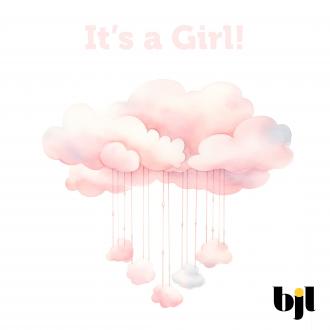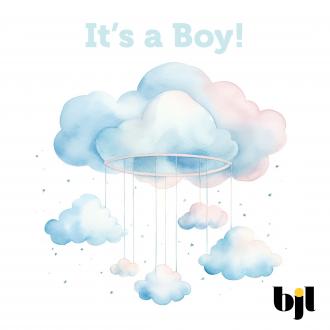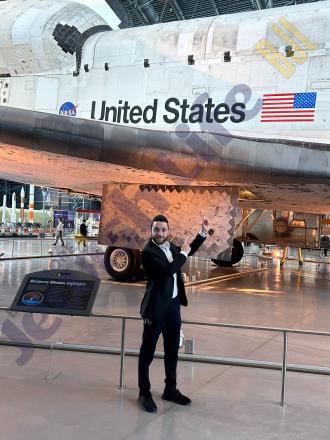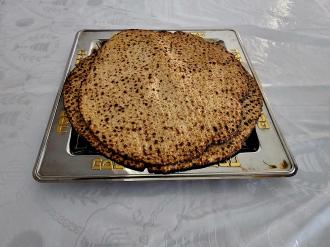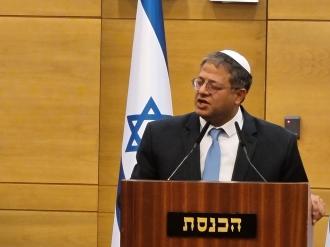The Lord spoke to Moses, saying: Speak to Aaron and say to him: "When you light the lamps, the seven lamps shall cast their light toward the face of the menorah (Vayikra 8:1-2)"
Nothing is random. As such, Rashi asks, “Why does the Torah juxtapose the section of the offerings of the Tribal Princes to the commandment to kindle the Menorah?” Rashi explains that Aharon was despondent that neither he nor his tribe was represented in the dedication offerings (at the end of last week’s Parsha). God tells Aharon, “Do not despair; your lot is greater than theirs for I have given you (and your descendants) the mitzvah to kindle the Menorah.” Aharon’s sadness was understandable. The entire nation, each and every tribe was participating in the dedication of the Mishkan (Tabernacle) and Aharon and his tribe of Levi were left out. But why the Menorah? Why did this responsibility mend his broken heart? After all Aharon as High Priest had many unique responsibilities. He brought the incense (kitores), he sacrificed the communal offerings and he was the only man allowed into the Holy of Holies (on Yom Kippur). What was the unique message and meaning of the Menorah that lifted Aharon’s spirits?
The Midrash (Midrash Rabbah 15:8) provides a beautiful insight:
There was a king who was to travel through a particular town, home to one of his childhood friends. The king sent a message to his friend requesting if he could join him in his home for a meal. The friend, a common farmer was excited for the great honor and began to feverishly prepare. The much anticipated day arrived and the simple farmer had set the table with his finest dishes, and flatware. There were main dishes, side dishes and delicious deserts. The farmer looked at the table and was eager to greet the king. The trumpets sounded and the royal coach arrived. As the door of the carriage opened, the trumpets blasted again and a small army of attendants and servants entered the home of the farmer. The servants were dressed in the finest clothing and were carrying golden torches to light the way for their beloved king. Upon seeing all of the pomp and wealth the farmer became embarrassed of his meager possessions. The table that a few minutes earlier had looked so beautiful and regal now looked so simple and quaint. The farmer began to feel inadequate and unprepared. ‘How can I serve the king on my simple dishes? How can I feed him my “commoner” food?’ The farmer began to clear the table, quickly putting away the dishes before the king entered the home. Just as he finished the king entered. ‘Didn’t you remember I was to join you for a meal?’ The king asked as he looked at the empty table. ‘Of course your majesty, but as I saw the great display of wealth I thought it would be more fitting if we would dine on your dishes and have your cooks prepare the meal.’ ‘My dear friend, the king remarked, I am here because I want to dine with you, in your home, at your table with your food. I knew that whatever you would prepare would be with love and attention. And I knew that your attentiveness to every detail would bring us closer to one another. We will not use my dishes, nor will my cooks prepare my favorite dishes, tonight I choose to dine with you in your home.’
The Midrash concludes: And so it was with God. God created the luminaries, He forged the sun, the moon and stars and yet, He asked Aharon (and his descendants) to prepare the light, to kindle the Menorah and to illuminate His home.
The message is powerful. God appreciates each and everything we do as long as we do it with love and commitment. Aharon was upset because he felt left out of the big sacrificial event. Neither he nor his tribe had the opportunity to participate in a meaningful way. God appeared to Aharon and explained, “I don’t need exorbitant sacrifices of animals and wealth. I don’t judge the quality of Divine service by the price tag on the offering – I am looking for your love. I am looking for you to do small things that show Me you love Me.” And so God commanded Aharon to kindle the Menorah. “Aharon, illuminate my home, kindle the seven small flames. It is true I am the God who created the world and created light itself – but when I come to my home I want to be with and feel loved by you. Kindle the menorah and allow me to feel your love in the smallest of acts.”
The small light of the Menorah teaches us the grandest of lessons. It is not how much you do but it is how you do it. What God is looking for from each of us is heart, Rachmana Liba Ba’Ey, God desires heart. God is willing to come to our homes and to our lives even if they are not the bastions of perfection and holiness. He just wants to know that He will be greeted with love and a warm smile. He wants to know that we want Him in our life. He wants to know that He has a place within our heart. There are times for great sacrifice and sacrifices – but more often, spiritual success in life is all about kindling your Menorah. If we set the table of our home with holiness, if we raise our children with Jewish ideals and beliefs and if we try to improve ourselves just a little bit each and every day – these are the “offerings” that God desires. The King of Kings in all of His grandeur and greatness is most happy when we set a simple table of dedication to Him. The Master of the Universe rejoices when he sees that I strive to become a better and holier person as an expression of my love and commitment to Him. This was and is the beautiful and holy message of the sacred Menorah. May we be privileged to find the holiness in the little things and may we perpetually feel the warmth and light of God’s presence in our life.

